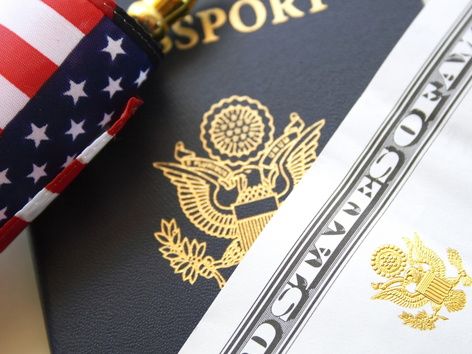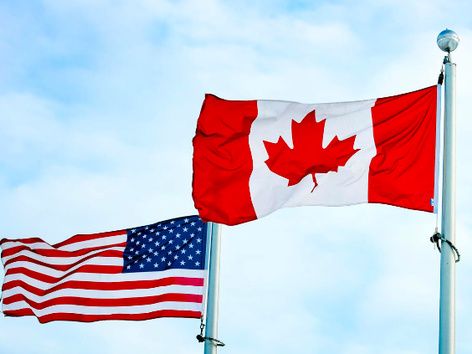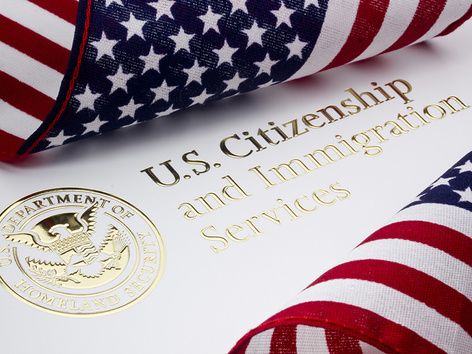The United States needs more migrants to address labor shortages

The modern economy of the United States of America is facing challenges related to labor shortages that affect various sectors and areas of the economy. To ensure sustainable economic growth, there is a need to attract more migrants. Find out more about the peculiarities of US migration policy, the main factors, possible consequences and prospects for attracting migrants
Since the country's founding, Americans have both supported and condemned immigration. In 1788, George Washington said: "I have always hoped that this land might become a safe and pleasant refuge for the virtuous and persecuted portion of mankind, to whatever nation they may belong." Instead, Benjamin Franklin asked: "Why should we tolerate the sky-burros who swarm into our settlements, and, flocking together, spread their language and manners, supplanting ours?" in reference to German immigrants.
This ideological conflict has been present throughout American history, including discrimination against Irish immigrants, the eugenics movement, union opposition, and the previous President Trump's "Muslim ban." Researchers who have studied this controversial history have sought to examine the economic impact of immigration, and the results confirm one thing: immigration helps the American economy and the world. Traditionally, the largest number of migrants come to the United States from India, Mexico, Haiti, and Cuba.
Economic benefits of immigrants in the U.S. economy
Studies of the projected benefits of open borders around the world provide crucial evidence of the economic benefits of immigration. Gross world product (GWP) would increase by 50-150 percent if the world had open borders. This would translate into a $48-144 trillion increase in the global economy, given the estimated value of GDP.
This increase is the result of migrants leaving low productivity countries for high productivity countries. Immigrants from poor countries will be more productive if they have access to the capital, education, and management practices of developed countries such as the United States.
However, the United States and the developed world can realize many of these economic benefits without an open border policy. Even a gradual liberalization of the immigration system could bring enormous benefits to the U.S. economy by allowing people to move to places where they can be more productive.
When immigrants buy goods and services from American companies, they also contribute to the development of the US economy. Statistically, each immigrant creates 1.2 jobs through their economic activity. In addition, first- or second-generation immigrants, who make up only a quarter of the U.S. population, founded 45% of Fortune 500 companies, and immigrants are 80% more likely to start a business than native-born Americans.
Finally, American workers earn higher wages because immigration allows them to specialize in the jobs they are best at. More workers increase the division of labor and specialization in production. As a result, specialization speeds up production, which leads employers to raise wages, allowing them to compete for labor.
Possible negative consequences of the inflow of immigrants to the United States
There is a perception that immigrants take the jobs of Americans, but they often take jobs that would otherwise go unoccupied. In most cases, immigrants do not reduce the wages of native-born Americans because they compete for a variety of jobs, which increases both the supply and demand for labor.
Of course, American workers who have not completed a high school education may suffer from immigration. Fortunately, it is possible to help this group by increasing the Earned Income Tax Credit (EITC), unconditional cash transfers, improving vocational and technical education programs, and reforming the US education system.
Critics of immigration argue that expats can be dangerous criminals, but they commit crimes much less frequently than natives. In 2018, in Texas, illegal immigrants were convicted of crimes at a rate of 782 per 100,000, while legal immigrants were convicted at a rate of 535 per 100,000. Native Americans, on the other hand, had a conviction rate of 1,422 per 100,000. National conviction rates for legal and illegal immigrants are equally low.
Critics argue that immigrants are more likely to join criminal gangs or commit terrorist attacks. However, only 0.03% of arrests made by the US Border Patrol are related to suspected gang involvement.
In addition, the probability that a B-visa immigrant will kill an American in a terrorist attack ranges from 1 to 4.1 million per year, while the probability that an illegal immigrant will kill an American in a terrorist attack is zero. This is because from 1975 to 2017, an illegal immigrant never killed an American in a terrorist attack.
Is it possible to attract more immigrants to the U.S. economy?
Critics may argue that there is no room for immigrants even if the United States wanted to help. President Trump has indeed stated that the United States is "overcrowded." In fact, the population density of the United States is very low compared to other developed countries. There are only 36 people per square kilometer of US territory, while in the UK this figure is 277, in France 123, and in Germany 238.
In addition, researchers have found that immigrant children pay more taxes than they receive benefits, and that expats use less social assistance than native-born Americans. Finally, with the aging of the U.S. population, an influx of young people of working age is needed to ensure that programs such as Medicare and Social Security are supported.
The economic benefits of immigration are clear, so policymakers must move beyond the "why" to the "how" and determine who should be allowed into the country. Before the passage of the Page Act and the Chinese Exclusion Act, the United States had open borders, but today open borders are unpopular and politically ineffective. As such, we cannot allow everyone who wants to move to the United States.
Opportunities for reforming US immigration policy
Canada's immigration system, which focuses on valuable skills, could influence the policy of increasing immigration. Canada admits five times more immigrants with bachelor's degrees and four times more workers with advanced degrees. In addition, immigrants who do not have the necessary knowledge are more welcomed in the Canadian system. Canada admits more immigrants on humanitarian and family grounds than the United States and almost three times as many immigrant workers without a bachelor's degree.
The U.S. receives fewer immigrants per capita than other wealthy countries such as Australia, New Zealand, and Sweden. All of these countries have their own immigration systems that focus on economic, family, and humanitarian immigration, but they all show that countries can thrive by accepting more immigrants.
A public visa program for foreign workers is one reform proposal that is similar to Canada's immigration system. Through the Canadian Provincial Nominee Program, provinces can nominate immigrants for permanent residence. In 2017, Senators Ron Johnson (R-WI) and Rep. John Curtis (R-UT) introduced the State Visa Support Pilot Program Act, which would allow states to fund foreign entrepreneurs and workers.
The advantage of decentralized immigration is that the federal government cannot meet the labor needs of all states with one nationwide policy. The federal government can only extend a temporary worker's visa if he or she continues to work in the sponsoring state to ensure compliance.
Congress could allow temporary workers to remain in their sponsoring state while obtaining permanent residency and citizenship to further incentivize compliance. Support for immigration across the country could be strengthened by a federalist approach that better matches immigrants to places where their skills are needed.
Daria Rogova, Head of Insurance at Visit World
To move, travel or work safely in a new country, you will need health insurance. You can apply for an extended policy on our website here.
Products from Visit World for a comfortable trip:
Checklist for obtaining a visa and necessary documents in the United States;
Legal advice on business issues in the United States;
Travel insurance for foreigners in the United States;
Medical insurance around the world.
More articles on the topic:
Car insurance for foreign drivers in the USA: what you need to know.
What are the employment opportunities in the USA for foreigners?
Is it legal to cross the U.S. border to seek asylum?
The American health care system: an in-depth guide for expats.
Scholarships for International Students in the USA for 2024/2025.
The foreign housing exclusion: a guide for American expats.
Recommended articles
3 min
Expats
United States or Canada for expats: which Country is better to migrate in 2023?
The United States and Canada are often the top candidates for relocation. Both countries offer great opportunities and a high quality of life. However, deciding which one best suits your aspirations and goals can be a challenge. Here's a look at the cost of living, key aspects, the most popular immigration routes, and other important details
30 Aug. 2023
More details3 min
Residence permit
Green Card in the USA: step by step instructions for filling out Form I-485
Form I-485, officially known as the "Application for Registration of Permanent Residence or Change of Status". Find out more about who is eligible to fill out Form I-485, the list of required documents, the Green Card application procedure, and other important details
25 Jul. 2025
More details2 min
Treatment
Medicine in Europe and the USA: what tourists and expats need to know
The healthcare system is one of the most important areas of life, reflecting the level of well-being of society and the priorities of the state. Find out how medicine works in Europe and the USA: what financing principles apply in different countries, how health insurance is organized, how much treatment costs, and what advantages and disadvantages each system has
23 Nov. 2025
More details2 min
Expats
H-2B visa in USA: the US plans to issue 64,716 additional H-2B visas in 2025
The U.S. Department of Homeland Security (DHS) announced that it plans to issue 64,716 additional H-2B visas in fiscal year 2025. This decision is aimed at solving the problem of labor shortages, particularly in such a scarce industry as tourism. Find out in detail how the H-2B visa will be distributed in 2025 and what are the main requirements for applicants
09 Dec. 2024
More detailsAll materials and articles are owned by VisitWorld.Today and are protected by international intellectual property regulations. When using materials, approval from VisitWorld.Today is required.
